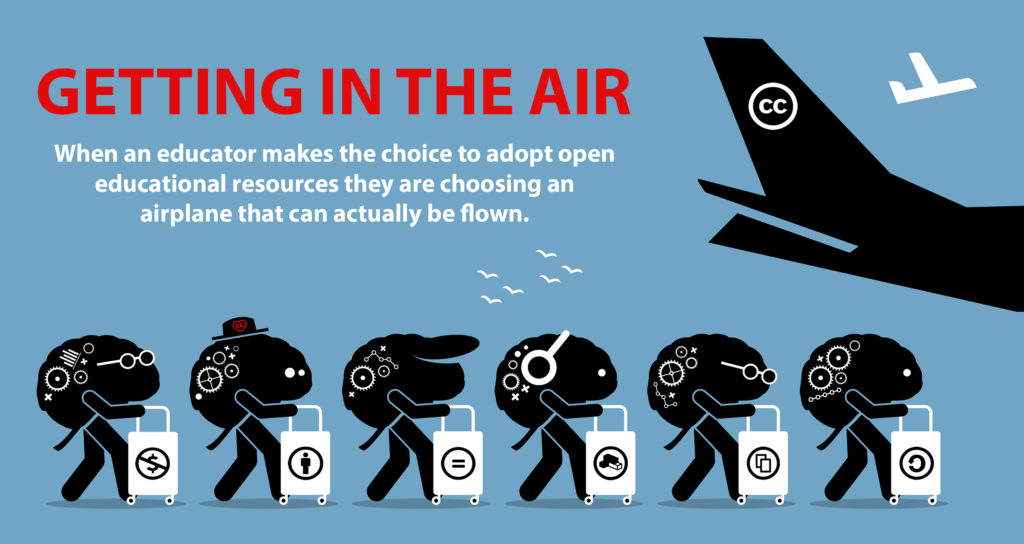
David Wiley’s “Parable of the Restrictive Roads” in his article Open Pedagogy: The Importance of Getting in the Air, compares the copyright restrictions associated with online content to an imaginary law that was made to restrict all motorized vehicles to stay on roads. In the story, the law was still in place when the airplane came along. The airplane was put under this law as a motorized vehicle and had to remain on the road. If a pilot made his plane leave the road (and fly), (s)he was punished under the law.
Wiley makes the point that we now have the internet and such copyright restrictions as were in place before the internet are outmoded and outdated. Just as the possibility for flight with the airplane was squashed by the law, Wiley states that the copyrighted textbooks and other materials invisibly “shackle” our actions.
The actions needed to be released via the internet (that is void of the restrictive copyright laws), according to Wiley, is for OER to be plentiful and educators to adopt OER. These actions, in turn, promote open pedagogy (that wouldn’t be possible without the availability of OER).
Even with all of the technology and opportunities available for OER to promote open pedagogy, however, Wiley fears that some educators may still not get into the air.
Simply adopting open educational resources will not make one’s pedagogy magically change to take advantage of the capabilities of the internet. Adding legal permission to technological capacity only creates possibilities – we must choose to actively take advantage of them. There is nothing about OER adoption that forces innovative teaching practices on educators. Sadly, many of the educators who choose OER end up driving them on the road, anyway.
David Wiley
#intro2opened
